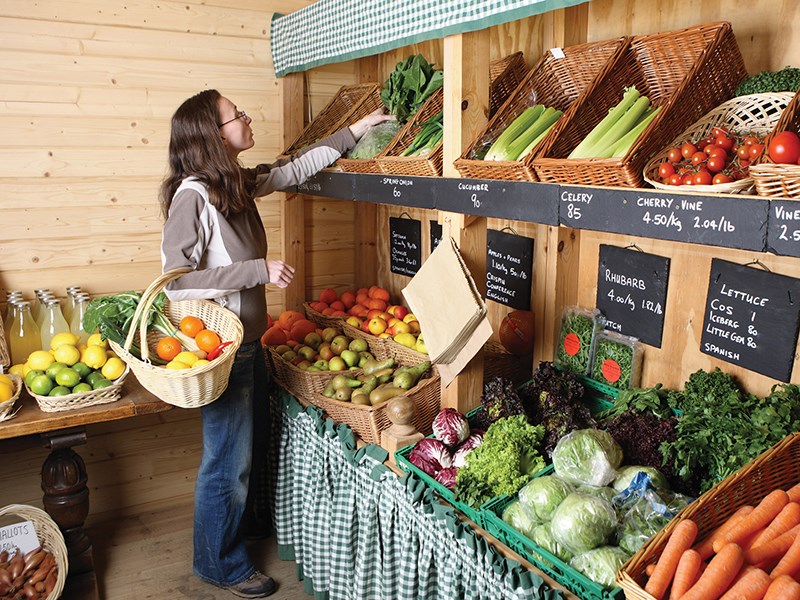Many of us are trained to bring our cloth bags to the store, especially now with most grocery stores charging per bag at the checkout. But what about what goes inside the bag?
Most plastic bag fees and bans do not include plastic produce bags. There is an endless supply of free plastic bags for produce and bulk foods in every aisle and it is not uncommon to see shoppers with one lemon in a bag or a few carrots. With so much of our food coming prepackaged and over-packaged, produce and bulk aisles are a place where we can choose to say no to unnecessary plastic.
There are many alternatives to the thin plastic produce bag. Even if the plastic bag is labelled compostable or biodegradable these bags do not disappear when you get them home and are actually destined for the landfill.
There are no compostable plastics allowed in our compost collection pilot program and biodegradable plastic is designed to breakdown so is not accepted in our recycling program.
If you are reading this at the grocery store right now and do not yet have or forgot to bring small reusable bags, head over to the mushroom area and use the paper mushroom bags for your bulk food (just this once).
Now for the alternatives:
• Bring a basket and keep produce loose. A big basket with a handle is a great way to shop. You can fill your basket with a head of wet romaine lettuce, a handful of tomatoes, or peppers, you name it. Use it as a shopping basket and leave the store without a bag at all.
• Buy or make a reusable produce bag and keep an estimated 700 plastic bags out of landfills and oceans. The most common bags available on the market are cotton and polyester mesh.
The cotton bags are biodegradable, last much longer and can be repaired, but the nylon mesh bags have the advantage of being see through and are lighter in weight. The weight of the bag will make a difference at checkout in the price per weight. Mesh-style bags are great for produce and large items but for bulk items such as beans or flour there are tightly woven cotton sacks that will keep the contents safe.
• If you are a DIY’er, there are many creative ways to make a produce or bulk item bag. If you have plastic mesh bags from sweet potatoes or onions, those can be repurposed and are quite durable. Old tank tops make great bags with handles, even small pillowcases and sheets can be a stylish way to leave plastic behind. There are great resources online, including patterns for knitting bags and repurposing an old shirt sleeve into a bread bag. These versatile, small bags also make great snack bags and sandwich bags.
Let’s Talk Trash is Powell River Regional District’s waste-reduction education program. Find out more at [email protected].



